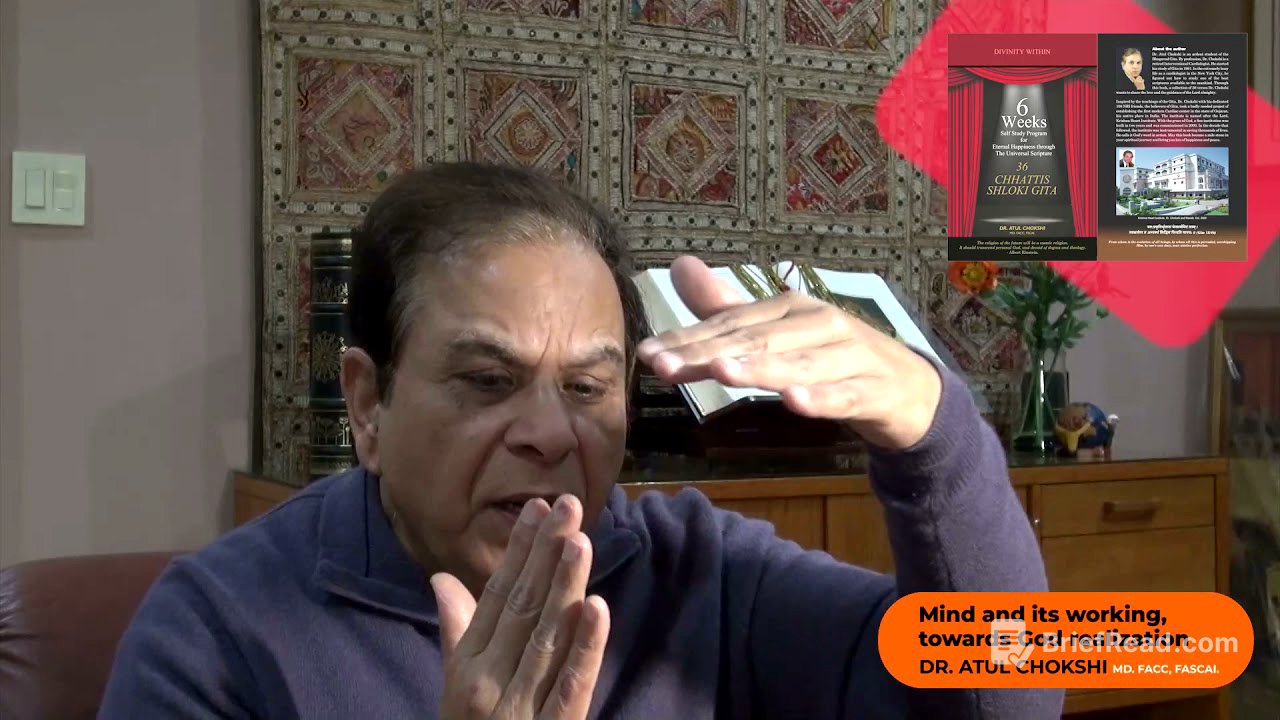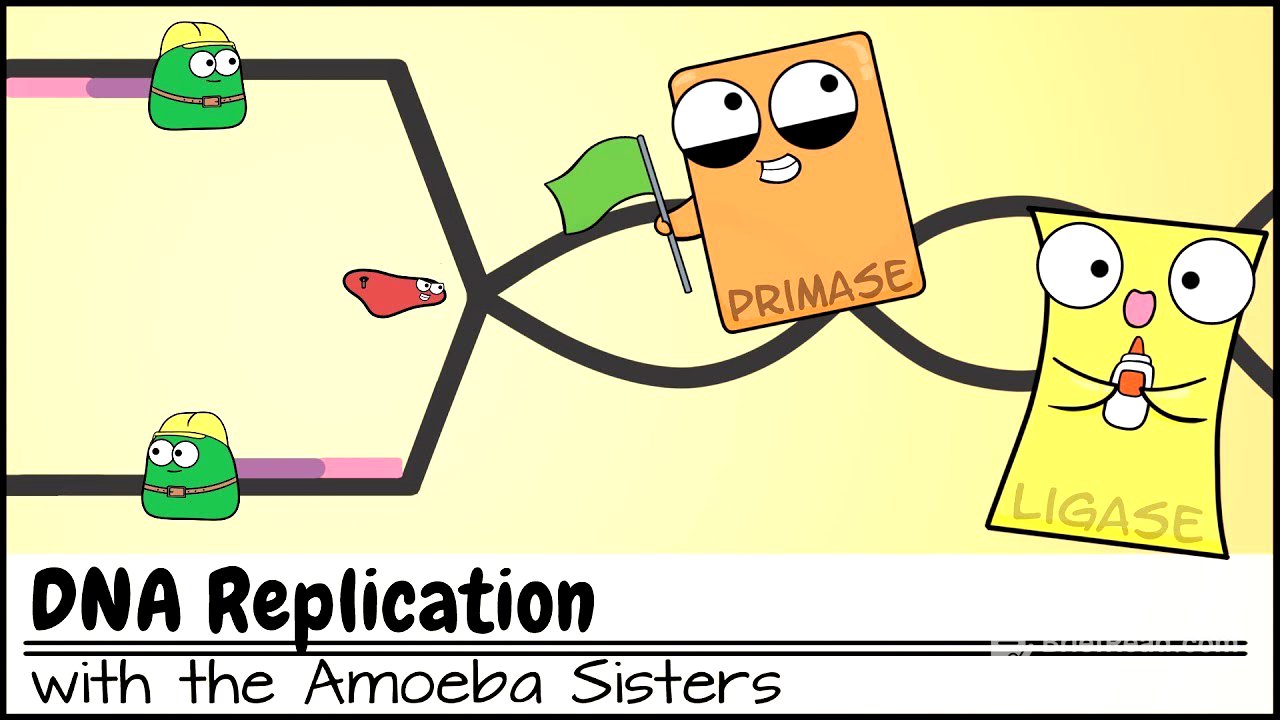TLDR;
This session focuses on understanding the mind, intellect, and their role in spiritual progress according to the Bhagavad Gita. It covers the complexities of the mind, its connection to the soul, and methods to control desires and achieve self-realization. The discussion includes insights from neuroscience, ancient scriptures, and practical techniques for purification and focus.
- Understanding the complexities of the mind and its connection to the soul.
- Methods to control desires and achieve self-realization.
- Insights from neuroscience, ancient scriptures, and practical techniques for purification and focus.
Introduction [0:00]
The session begins with a welcome and an overview of the topics to be covered, including divine and devilish qualities, the nature of the mind, and the importance of charity. It sets the stage for an exploration of how these concepts relate to spiritual growth and self-awareness.
Mind and Brain [1:34]
The discussion distinguishes between the mind and the brain, noting that while the brain is physical, the mind is more complex and can be confusing. It emphasizes the importance of locating and understanding the mind through various techniques, including respiration control. The mind is described as having different energy centers and stages, influencing one's awareness and perception.
Eastern vs. Western Perspectives [3:27]
The conversation highlights the differences between Eastern and Western perspectives on the soul and mind. The East, particularly India, has historically recognized the presence of the soul and developed methods to understand the mind through science and logic. In contrast, the West has only recently started to explore these concepts, with ancient practices now being appreciated in modern science.
Mind and Information [6:07]
The discussion explains how the mind receives and processes information. It describes the mind as a screen that receives impulses from various sources, which are then interpreted and stored. The concept of "Chitta" is introduced as a storage space for information, and the importance of filtering and understanding this information is emphasized.
Mind Control and Arjuna's Question [11:03]
Arjuna's question about the difficulty of controlling the mind is presented, with Lord Krishna acknowledging the mind's strength and restlessness. Krishna suggests that control is possible through detachment and consistent practice. The discussion touches on the importance of self-restraint and discipline in managing the mind.
Purification and Self-Realization [14:41]
The session emphasizes the role of self-purification in understanding the soul. It explains that the mind, intellect, and senses must be purified to achieve clarity and happiness. Techniques such as memory enhancement and sense control are mentioned as ways to facilitate this purification process.
Influence of Desires [18:31]
The influence of desires (Rajogun) on knowledge and judgment is discussed. Desires can cover and distort one's understanding, leading to delusion and attachment. The importance of controlling desires to uncover true knowledge is highlighted.
Controlling the Senses and Intellect [22:19]
The session explains the process of controlling the senses and intellect to destroy desires that hinder knowledge. It emphasizes that lasting happiness and peace cannot be found in worldly things but through self-development and understanding the soul.
Power of the Soul and Intellect [26:04]
The power of the soul and the role of the intellect in controlling the mind are explored. A strong intellect is essential for guiding and controlling the mind, preventing it from being swayed by desires. The discussion also touches on different states of mind, from peaceful to deranged, and the importance of focus and concentration.
Understanding and Managing Desires [31:27]
The session addresses the problems caused by desires and the importance of observing and judging them. It explains that desires can lead to a lack of focus and control. The discussion also references Buddhist philosophy and the concept of self-realization as the true source of happiness.
The Troubled Mind and Spiritual Progress [33:44]
The session identifies desires as the most troublesome aspect of the mind and explains how they hinder spiritual progress. It emphasizes the need for total annihilation of desires to achieve clarity and advance on the spiritual journey. The suppression of desires can lead to suppressed feelings and hinder Brahman creation.
Working on Mind and Intellect [36:21]
The importance of working on the mind and intellect to achieve self-realization is reiterated. The session references verses from the Bhagavad Gita that describe the state of enlightenment achieved by those who have destroyed their desires. Lasting happiness and peace are only possible with true knowledge and the elimination of selfish desires.
Yogi and Self-Realization [39:21]
The qualities of a Yogi, who is focused on self-realization and controls desires through intellect, are described. Such individuals can achieve real life and ultimate peace. The session emphasizes that a person who works towards the single goal of self-realization can have a fulfilling life.
Mind, Intellect, and Spiritual Growth [40:54]
The session summarizes the importance of understanding and controlling the mind to achieve both worldly and spiritual success. It highlights that awareness of the Supreme Court (Supreme Consciousness) can lead to self-realization. The mind can be either a friend or an enemy, depending on how well it is managed.
Swami Vivekananda's Quote [43:49]
A quote from Swami Vivekananda emphasizes the importance of using intellect to control the mind and achieve self-realization. The session underscores that clarity of mind leads to increased peace and bliss.
Qualities of a Yogi and Devotee [45:08]
The qualities of a Yogi and devotee are described, emphasizing their welfare-oriented nature and focus on spiritual progress. Such individuals prioritize the well-being of others and strive for self-realization.
Service as a Means of Purification [46:29]
Service to others is presented as the best way to purify the mind and intellect. Engaging in acts of service helps in personal development and spiritual growth.
Mind Control Techniques [47:19]
Techniques for controlling the mind, such as meditation and maintaining a conscious state, are mentioned. The session advises against anger and frustration, promoting a balanced and peaceful approach.
Desires and Self-Realization [51:34]
The session concludes by reiterating the importance of increasing divine qualities and controlling negative tendencies to achieve self-realization. It encourages viewers to focus on positive attributes and reduce negative ones like anger, greed, and attachment.
Working on Subtle Levels [54:55]
The discussion emphasizes working on subtle levels to address the root causes of mental disturbances. By understanding and managing desires, individuals can live in the present moment and achieve lasting happiness.
Message for Spiritual Seekers [56:29]
A message for spiritual seekers encourages them to protect and promote good causes, seeking help from the Almighty. The session underscores the importance of self-judgment and avoiding problems to create a fulfilling life.
Conclusion [59:26]
The session concludes with thanks and a summary of the key points discussed. It highlights the importance of charity, self-realization, and working on the mind to achieve spiritual progress.









